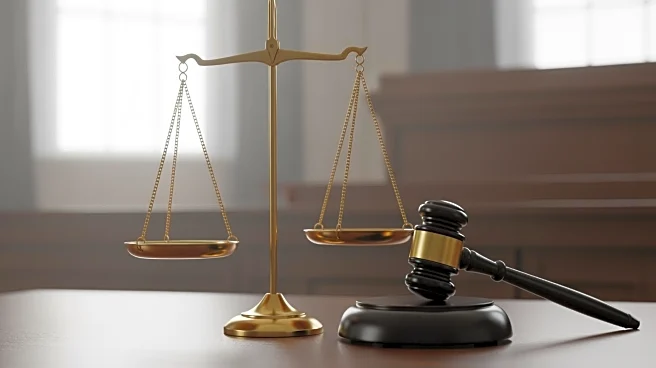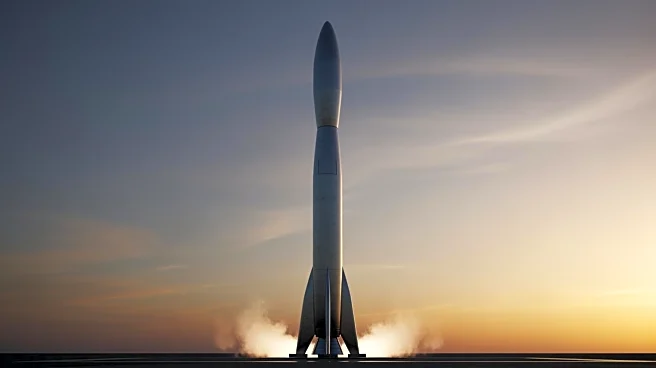What's Happening?
The Supreme Court is set to hear a case challenging the Trump administration's unilateral imposition of global tariffs, which critics argue exceed the powers granted under the International Emergency Economic Powers Act (IEEPA). The case questions whether
the president can impose tariffs without explicit congressional approval, a power traditionally reserved for Congress under Article 1, Section 8 of the Constitution. The administration defends its actions by citing national security concerns, claiming that trade imbalances pose an 'unusual and extraordinary threat.' The outcome of this case could redefine the balance of power between the executive and legislative branches regarding economic policy.
Why It's Important?
This case is pivotal in determining the extent of presidential power in economic matters, particularly in the context of national security. A ruling in favor of the administration could set a precedent for expanded executive authority, allowing future presidents to impose economic measures without congressional oversight. This could have significant implications for U.S. trade policy and international relations, as well as the constitutional separation of powers. The decision will also test the application of the major questions doctrine, which requires clear congressional authorization for actions of significant economic and political impact.
What's Next?
The Supreme Court's decision will likely influence future executive actions in trade and economic policy. If the court upholds the tariffs, it could embolden the executive branch to take similar actions in other areas, potentially leading to a shift in the balance of power between the branches of government. Conversely, a ruling against the administration could reinforce congressional authority over economic matters, prompting legislative action to clarify the limits of executive power.
















